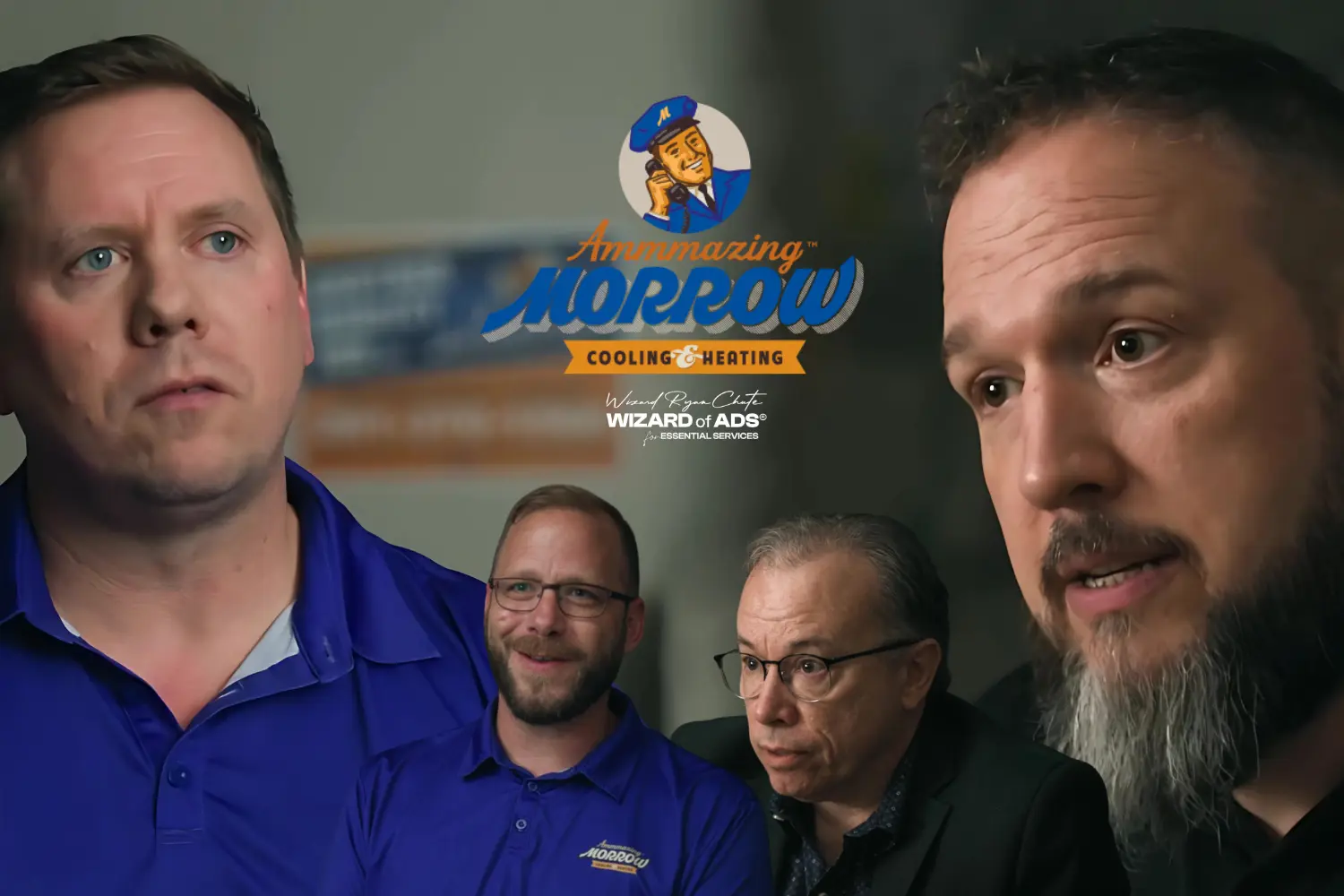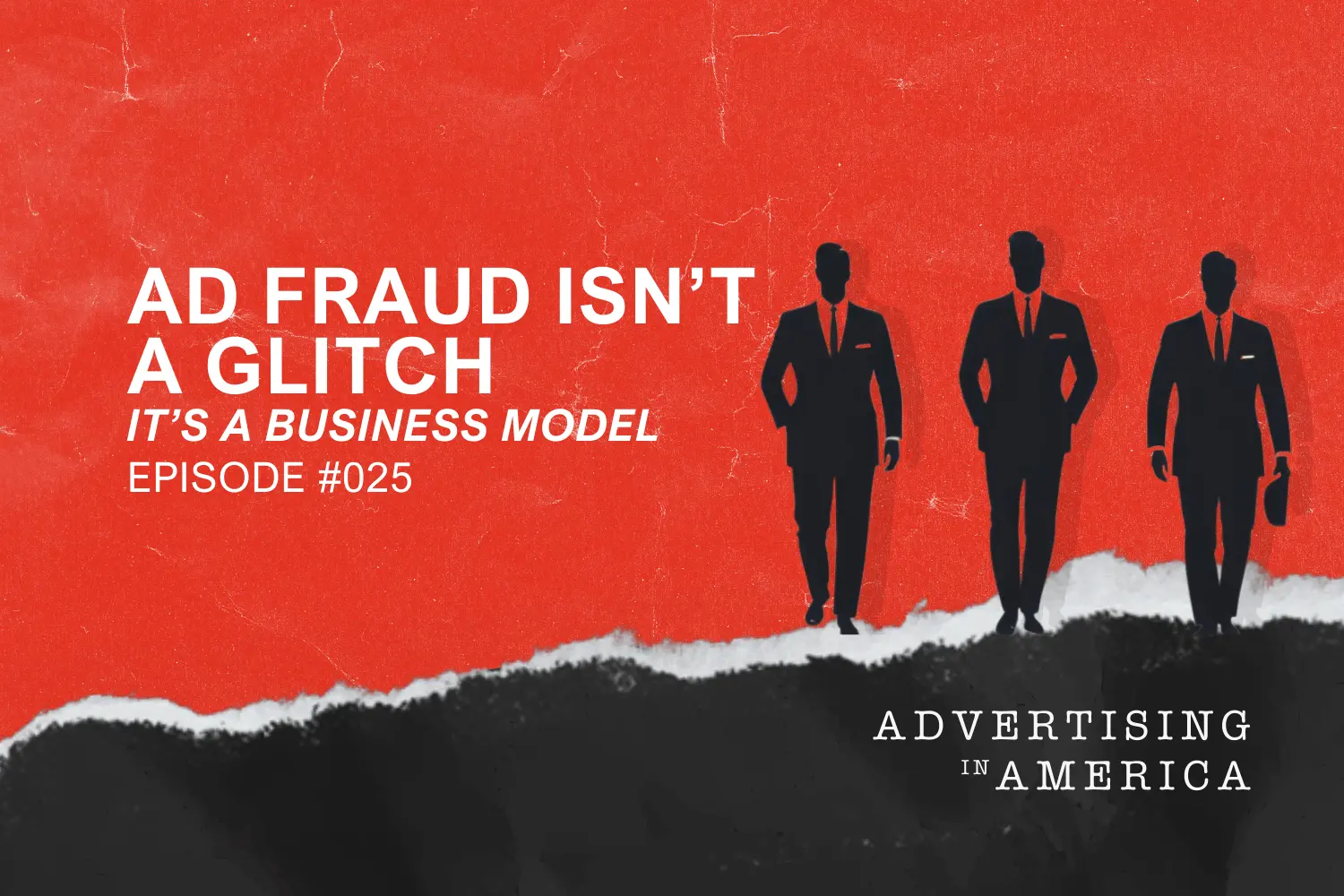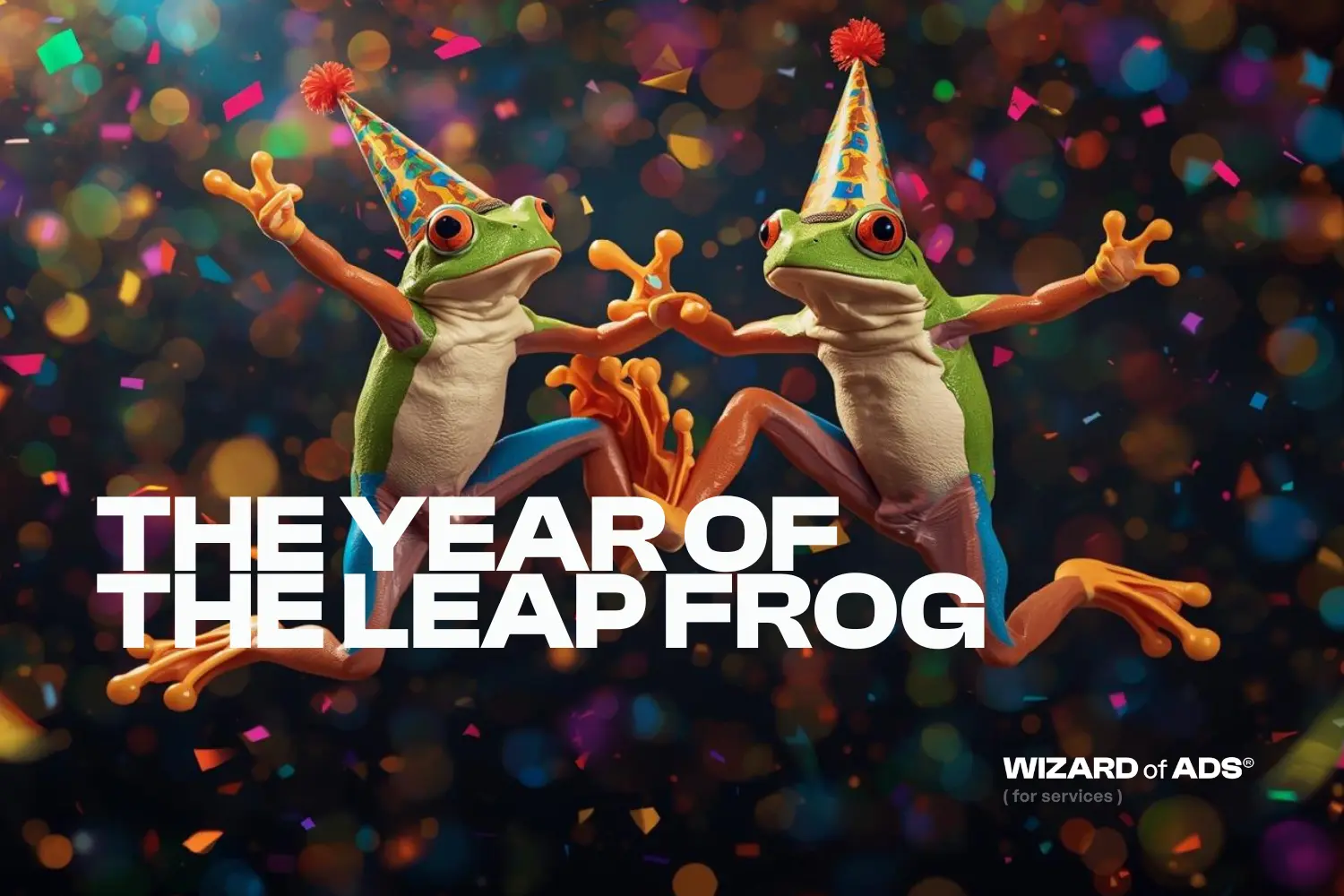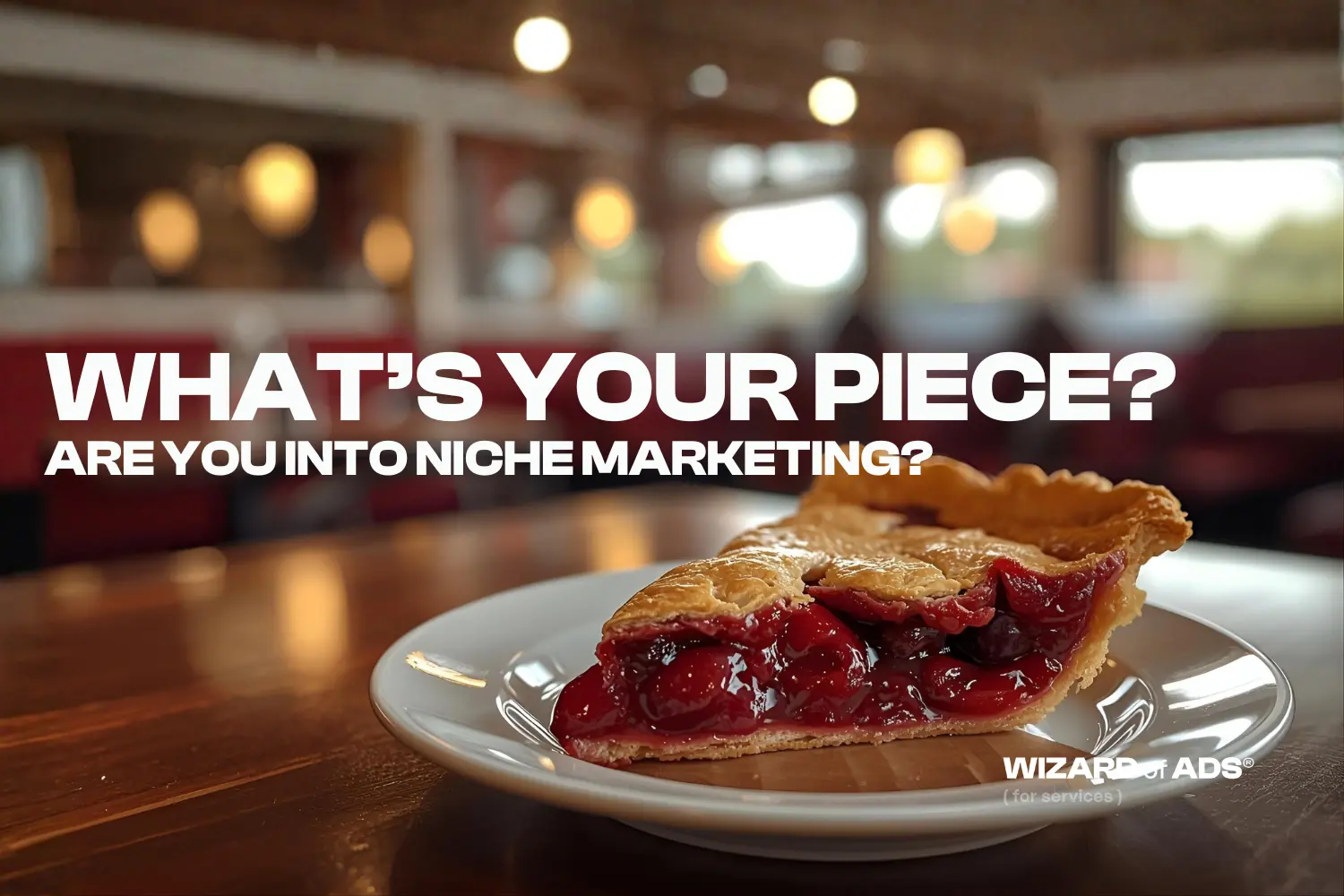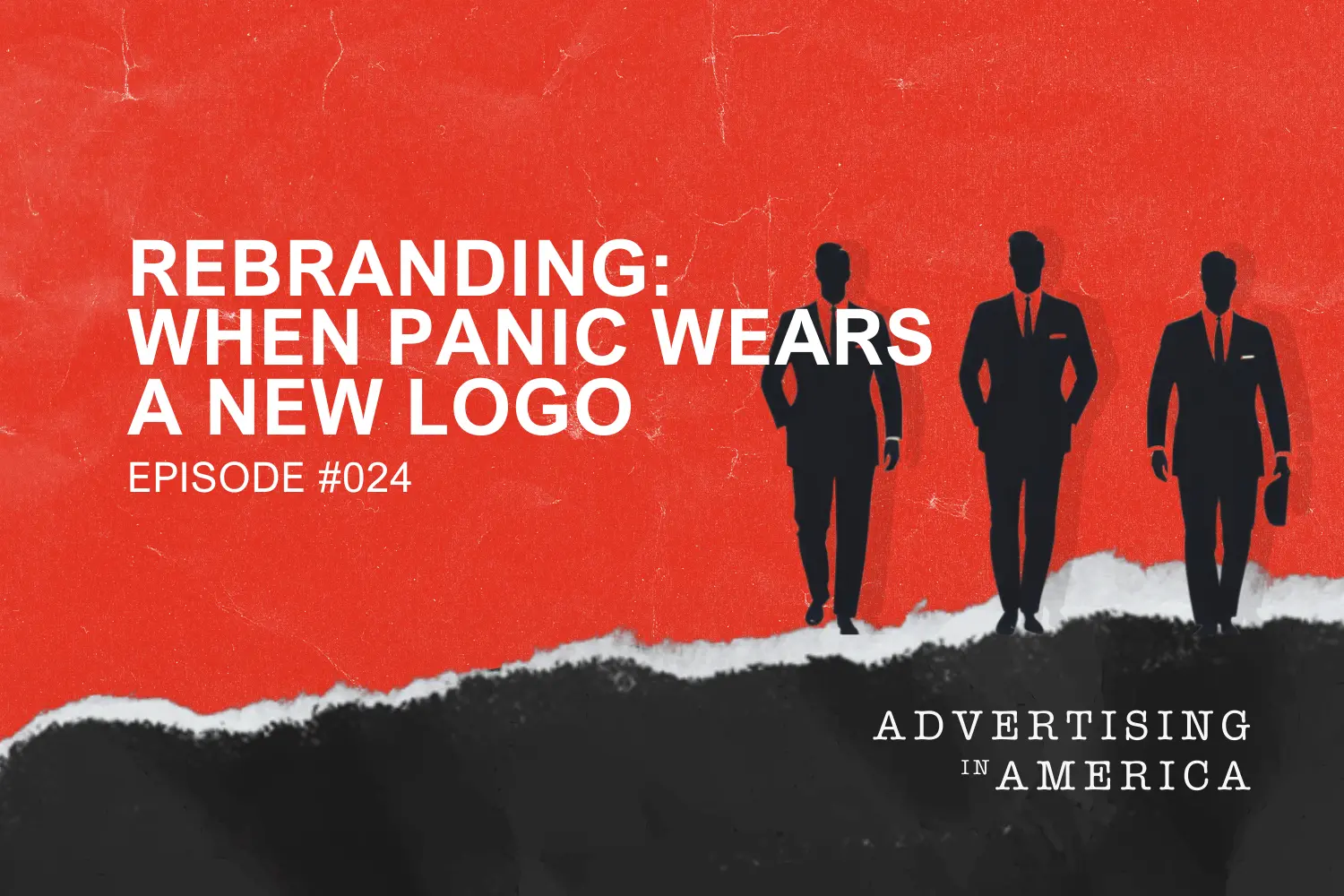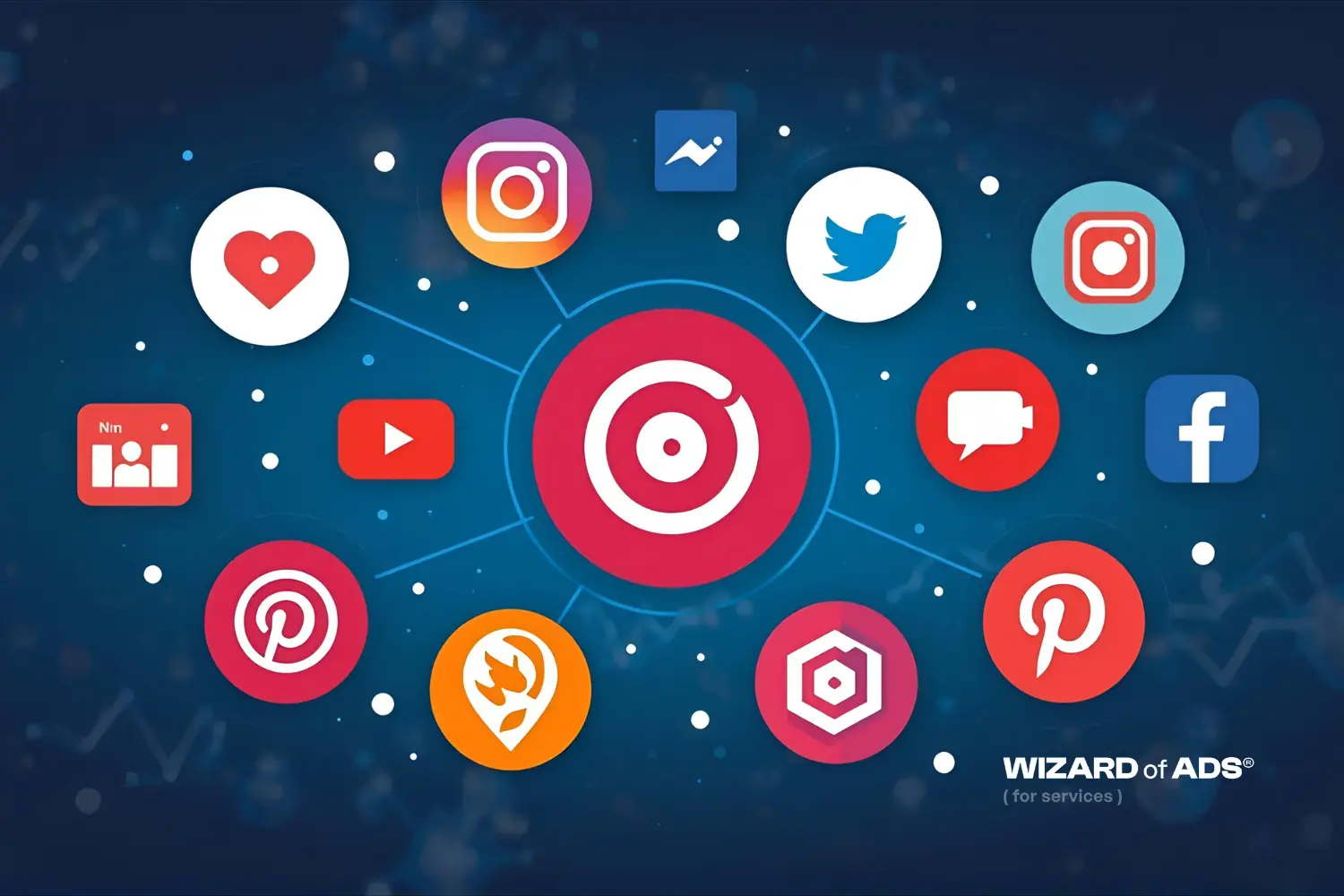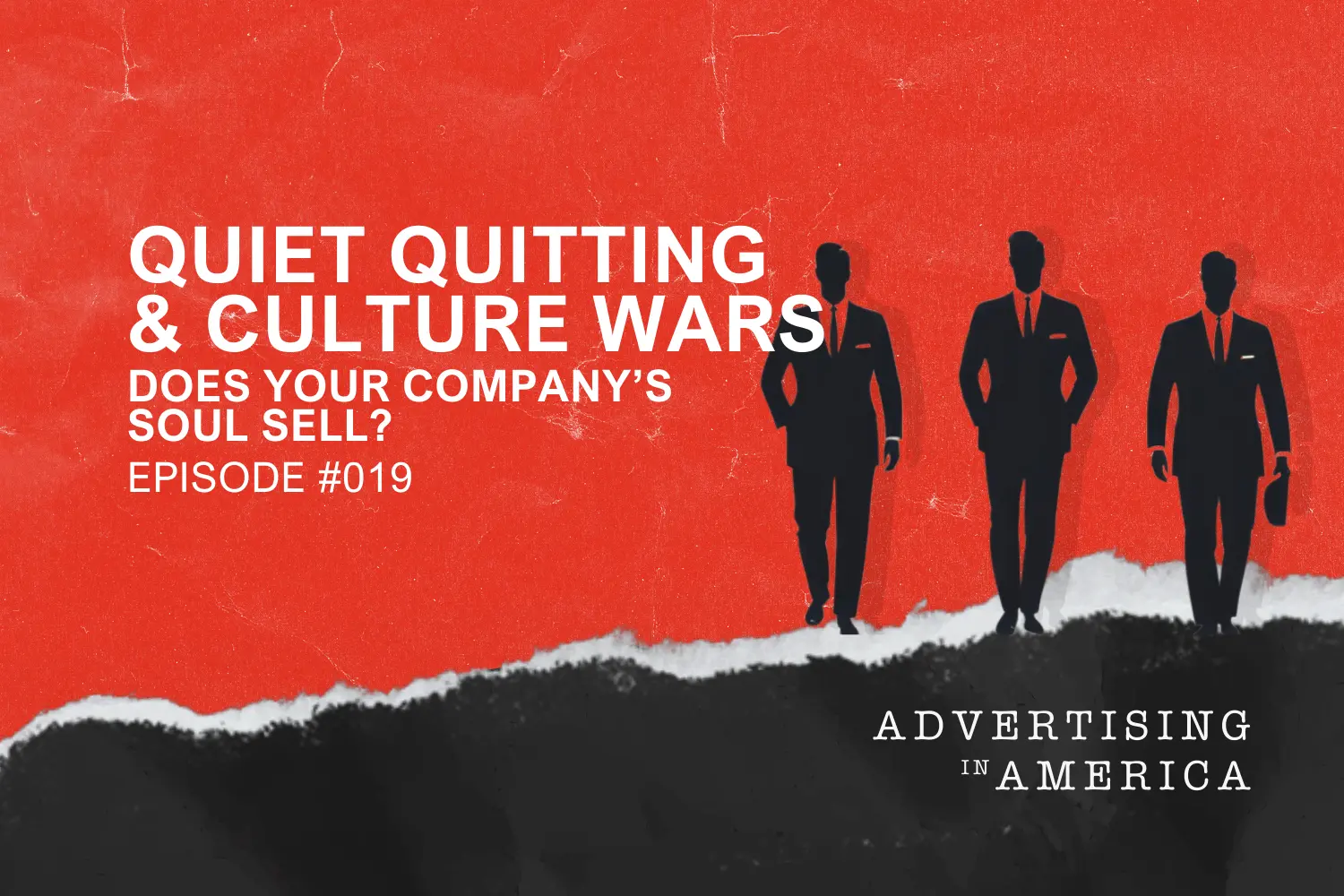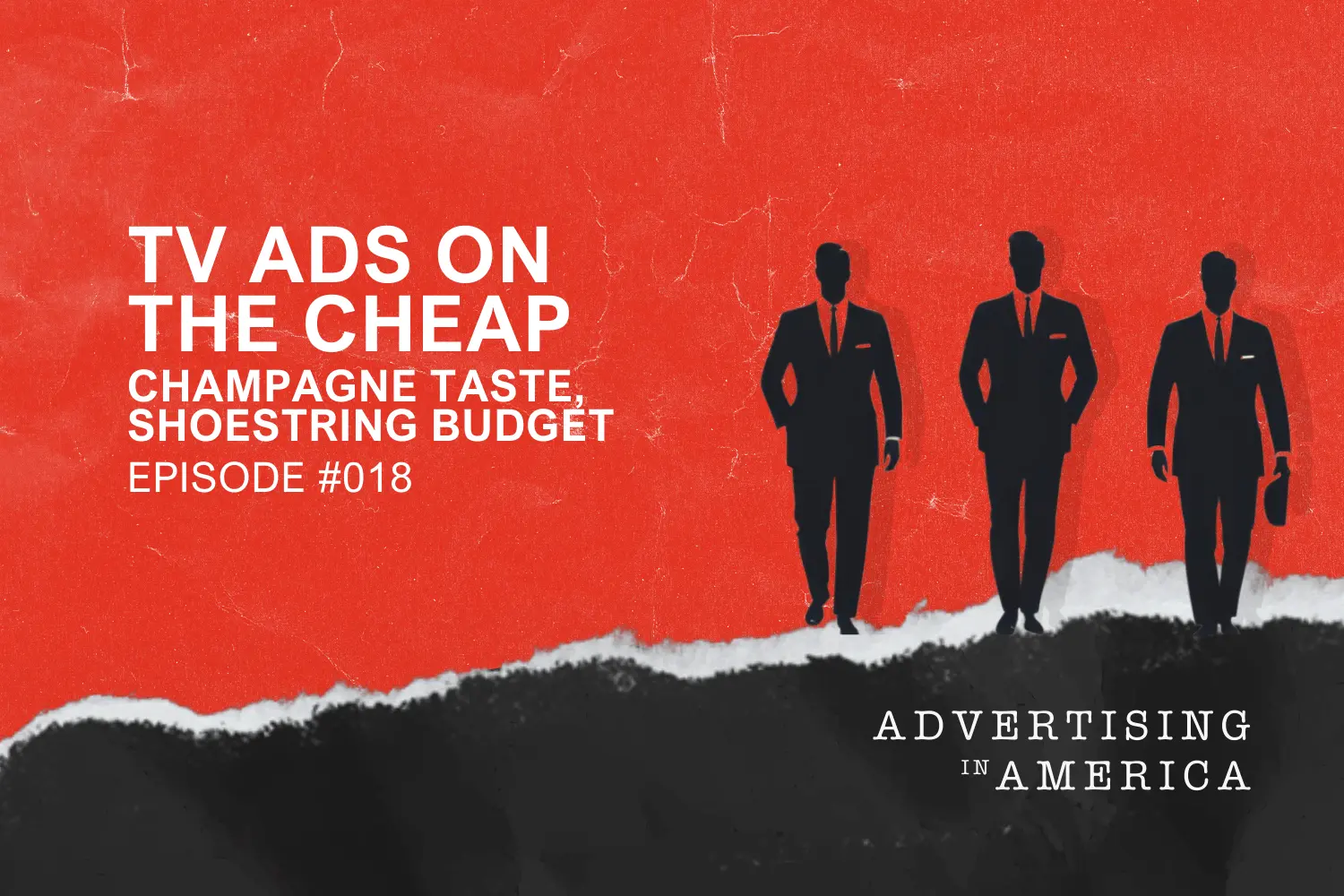
Let’s be honest—most recruitment ads couldn’t convince a starving man to eat a sandwich. And it’s no surprise: they’re loaded with buzzwords, clichés, and desperate “competitive salary” nonsense.
If someone tells you otherwise, they’re either trying to sell you ad space or snake oil.
In this episode of Advertising in America, we tear into the sad state of hiring ads and explain why the real problem isn’t the job market—it’s your messaging.
Episode Highlights
- Why no one believes your “fast-paced environment” garbage
- How to write ads that attract the right people without turning off the rest
- What it really means when employees don’t refer their friends (spoiler: it’s you)
- Why every ad is a recruiting ad—and how to use that to your advantage
- How to stop bribing applicants and start building loyalty that lasts
Because let’s face it: great people don’t work for losers. And your best hires aren’t scrolling job boards. They’re already employed—and silently wondering if there’s something better.
🎧 Hit play. hen stop sounding like HR wrote your ad & start building a team that wants in.
📱 Subscribe wherever you get your podcasts
🔥 Then ask yourself: Would you name your company that?
💥 Brought to you by Wizard of Ads® for Essential Services
Most recruitment ads suck. But to be fair, that’s only because most ads of any kind suck. So, why should recruitment ads be any different?
The challenge of recruitment advertising is the same as the challenge for brand advertising. You can’t just tell me something about your company and expect me to believe it. You have to demonstrate it,
If you have 100,000 people listening to the radio this week, and you run a recruiting ad, of that 100,000 people, about 20 might be interested in coming to work for you. Which means you better bloody well think hard about what you say to the other 99,980 people because they’re listening too.
I will absolutely pay a signing bonus. I will pay it to the person who referred them in, who's been my loyal employee.
Be awesome. And awesome people will want in.
If you do this correctly, every ad is a recruiting ad.
Ryan Chute: Recruiting, hiring, staffing up, whatever you call it. Finding great people is one of the hardest and most important parts of running a business, and yet most recruitment ads are so bad that they have trouble convincing a dog to chase a bone. On today's episode of Advertising in America, we're breaking down why recruitment ads suck, and more importantly, how 'em make 'em not suck. Mick, what do you say?
Mick Torbay: Most recruitment ads suck, but to be fair, that's only because most ads of any kind suck. So why should recruitment ads be any different? But I'll give you a few clues as to why yours suck and how to make them better.
First, let's define our terms. When I say a recruiting ad, I mean an ad that everyone sees, not the ones on a recruiting website. That's a whole different kind of suck. We'll get to those later. I mean, a recruiting ad that's on the radio, on TV, or online, that's not in a job search environment, that kind of recruiting ad. The first thing you have to keep in mind when writing a recruiting ad is that most of the people who are exposed to it are not going to come to work for you. Nearly everyone.
If you have a hundred thousand people listening to the radio this week and you run a recruiting ad of that, a hundred thousand people, about 20 might be interested in coming to work for you, which means you better bloody well, think hard about what you're saying to the other 99,980 people because they're listening to and they're learning about you and they're judging you.
My brother Chris has a former client who put a recruiting ad on Facebook and linked it to his personal Facebook page. It was a recruiting ad for a sales position at his company, and it was amazing. Here he is, talking to everyone in his community about what he's looking for in a salesperson.
“We're looking for closers. We want people who could sell ice cream to Alaskans, not afraid to upsell. Performance is everything.” And I'm reading this and I'm thinking, ice cream to what the fuck dude? What he's actually saying is, “I train my sales staff to sell people stuff they don't actually need.”
That's what the expression means. We put making money ahead of helping people, and you're saying that to everyone. For real, this guy did that.
Now, at the Wizard of Ads, when we write an ad campaign for our clients, we always, always create a recruitment problem, and that's because our clients grow and grow quickly. If you don't have a staff shortage now, you will about a year after hiring us, because you'll have more work than your current staff can handle.
So we are looking at how to solve that problem before it's even a problem, because we've seen this movie before, and the way we do it is, we keep in mind that potential hires are watching TV and listening to the radio too. Watching what you say and what you stand for, and when we do it right, every ad is a recruiting ad.
Be the company people want to work for. Reveal something about yourself. Demonstrating that you're a good company to buy from probably means you're a good company to work for. If you can become the leading brand in your category in your community, don't be surprised when others want to join the winning team.
If you do this correctly, every ad is a recruiting ad.
Ryan Chute: So Mick, what you're saying is that every ad is a recruitment ad, even when it's not, as long as it doesn't suck. That's some big picture thinking, I'm in. But now let's zoom in a little. Chris, what's your take?
Chris Torbay: I agree with Mick. I'll deny it if you ever call me on it, but he is right. When you make a company look enticing to a customer, you also make it look enticing to a certain kind of employee. There are tons of people who would love to work for Apple, or Mercedes-Benz USA, or The Walt Disney Company, or Ben & Jerry's, and it's not because they do killer recruitment advertising. They think that brand looks fun, or that brand looks like they get me, and so that's the place they aim for.
The challenge of recruitment advertising is the same as the challenge for brand advertising. You can't just tell me something about your company and expect me to believe it. You have to demonstrate it.
The same as a plumbing company can't just say, “We are the ones you can trust.” You can't just say to people, “This is a really good place to work.” Just because you say it doesn't mean I believe you.
Because when people say things about what they're like. They lie. In recruiting ads, we know what those euphemisms are looking for a self-starter means: “You'll have lousy coaching and supervision, and we are gonna just expect you to figure it out on your own.”
Competitive salary means, “we don't know how much to offer, so we're gonna see how little we can get you for.”
A fast-paced environment means “the workload's too heavy, and management barely has control over how things operate.”
We work hard and we play hard means, “We work hard, then people get plastered at the end of the week on their own dime just so they can put up with it.”
Just like consumer branding messages. Don't tell me. Show me when you see an Apple ad or an Apple product, there is a certain personality of designer or developer who thinks, “that's my aesthetic. I would fit in perfectly on that team.” The key is that I don't see you pulling the strings. The recruitment aspect of that advertising has to be invisible. You don't run an ad for an iPhone and then say, “And if you think like we do, we're also hiring like-minded people to join our team.” If you do that, your ad is trying to do two things, and your ads should do one thing. If you're trying to sell me your products or services and you're also hiring, I literally don't know if you're buying or selling.
If I'm clever enough to figure out on my own that you must be an awesome place to work, now we're talking Cordova. Google is literally beating people back with a stick. When people say literally, they almost always mean figuratively. In this case, there may literally be a stick involved. There are interviews, and written tests, and personality screening, and trips to the campuses, sample assignments, and very few people make it through the gauntlet to get hired, but thousands or maybe tens of thousands of people apply every year because what they know about the brand makes them want to work there.
They never put a help wanted sign in the store window, be awesome and awesome people will want in. Be mediocre, and mediocre people will make a half-hearted effort to beat down your door, or you know, jiggle the handle a little and then probably give up.
If you do post a recruiting ad, tell me a story. Help me draw my own conclusions about what your brand stands for and why that is something I want to be part of. Tell me things that demonstrate, and let me conclude that you are an interesting place to work. That it's an opportunity to learn and grow, that I'm a good personality fit for the team I'm gonna be a part of. But no recruiting ad will make me think that if those things aren't true
Ryan Chute: Now that's a lot to chew on. Recruitment ads aren't just about finding people. They're about finding the right people, and you can only get a great fit when you fill the gaps, too. And as we've heard, that takes more than just throwing out clichés, self-starter and fast-paced environments. Let's dig deeper into what makes a recruitment ad not just functional, but memorable after the break.
Ryan Chute: There's a lot to unpack here on this episode, and where I'd like to start is with something that is very often in our blind spot, and that's around who is the actual competition for our employees, or our potential employees or the applicants that are coming in?
There’s no question that you're up against all of the plumbers who are looking for plumbers in market that you're in, but you're also up against all of the competition out there of jobs that are looking for people who are willing to pay the same amount of money or more to do an easier job. So we start to think about how we stand out in the crowd, and how big this crowd actually is?
Chris Torbay: Yeah, I mean, not necessarily just an easier job too, but you know, how many people are wondering whether the career they're in is the career for them, and is there something else that I could get involved in?
And you're right, if your target audience is, you are only looking for veterinary nurses, then that's a very, you know, small target to go after. And, wherever you advertise, now, if you advertise in mass media, boy, there's a lot of people that you're not advertising to in order to get the ones that you're trying to reach. But if you present your company or think of the opportunities that you're offering in terms of what kind of person with what kind of skills, what I like in this job, and I can teach them the specifics of it. And you think of it more broadly that way, now you can advertise in a bunch of other places in more mass media.
And you can concentrate on hiring the right kind of person, not the right kind of existing resume. And I think that opens you up, and we've had some clients where we've done advertising, either directly recruitment-based advertising or this double duty advertising that Mick talked about, who deliberately look out of field for their new hires because it's like, I could teach you how to run the J2000 machine. What I want is somebody who's got an awesome work ethic, or who really likes talking to people or these sorts of things. And when you can open it up like that. A, you can advertise bigger, which means you can advertise to a larger target. You've got a much larger potential pool of applicants. Right? And frankly, it says, it says better things about your company too, because you talk about, you talk about beliefs and you talk about the tone of the organization when you're talking to people outside of the specifics of, “I need a guy who knows how to use this wrench.”
Mick Torbay: When we speak to our clients, we're creating a recruiting ad, by this I mean a recruiting ad that is specifically targeting people and is very, very specific about that. One of the questions we ask our clients is, “Are you looking for an experienced person who already has this job, or are you looking for people just in general, and you're gonna train them to do the thing you want to do?”
It seems like a little thing, but it's actually a massively huge thing, and that's because if you're looking for somebody with experience. Kind of by definition, you're talking to somebody who already has a job, they already, which means they're kind of working for your competitor now. And you're now asking them to leave their job and come and work for you.
Well, you can't get them to do that by simply saying, “We are hiring.” Let's say you're an HVAC company and you're hiring HVAC techs. Simply saying, “We are an HVAC company and we're hiring HVAC techs,” is not enough to make someone say, “I'm gonna quit my job and start to come.” To you, that's the recruitment equivalent of here's who we are and here's what we sell.
Doesn't move the needle. So you have to be really, really specific in your messaging because you have to be talking to either a disgruntled worker, or you have to somehow entice them away from their existing job, and that's not an easy thing. That's actually kind of a big deal. So you have to really be giving them something that's gonna tremendously change them.
Ryan Chute: And this is really no different than my theory of the brand is your culture, and your culture is your brand. Because ultimately, people are gonna say, “Oh, I wanna work for that company,” and then you've got your share of the unicorns. And if you don't have that, what you're doing is exactly that. You're answering questions that no one's asking, or you're saying, “Hey, I need a customer to buy my air conditioning stuff, and you're a customer, and I sell air conditioners, so why not come buy my stuff,” right? Then buy my stuff in this case, I'll pay you some sort of exchange to be here and try not to be too much of a pull.
Chris Torbay: But again, the question comes like, consumer advertising, the question comes down to, okay, I got a job. Or as you said, two other people are also saying they're hiring. So why you?
Ryan Chute: Think of that candidate as a consumer, is the consumer of your job, right? And your job is going to be represented by your brand. And ultimately, the brand is a combination of what your people feel is true to your business. And they're the ones who are going to give the buying experience, and the buying experience and employee experience make up the brand. So this self-referential full circle makes it so important for people to realize that if you want the best, if you want to accelerate growth, if you wanna find unicorns, you gotta do that with the best brand because unicorns don't work for losers.
Mick Torbay: You have to give them something worth leaving their job for and breaking in a new boss. People don't like to break in a new boss, it's no fun. So you can't think that you're gonna accomplish that just by simply saying, “Oh, I'm hiring. And, uh, what are you paying? Uh, pretty much the same as everybody else.
Chris Torbay: A competitive salary.
Mick Torbay: Yeah, sure. Let me guess. Is it basically what I'm making out?
Ryan Chute: So the trick here is in a lot of the ads that you've written, where every recruitment ad is an ad, and every ad is a recruitment ad, that we can put that on mass media and ultimately the mass is hearing it and 99% aren't going to be employees of yours, but the people who are hearing it are saying, “I would want an employee like that in my house.”
Mick Torbay: Absolutely, if you're running a recruiting ad that regular consumers are gonna hear, you have to understand, mathematically, 99% of the people listening are not, are not coming to work for you. They're just listening to how you recruit. So, you have to bearing the consumer's reaction to your recruiting ad in mind as much or more than the candidate, even though that's what you're trying to do, because they're listening and if you say, for example, “I'm looking for a, a, a salesperson who's going to jam a sale down their throat that they don't want,” you're turning people off and that's most of the people listening.
Chris Torbay: That is most of what you're at is accomplishing, as opposed to the one small thing that you originated into.
Ryan Chute: And when done elegantly, as you have for a number of our clients, what we see is that you're not just speaking to John, who's getting a little bit as sick of Jerry, right? The boss.
Mick Torbay: Well, you have to think in the mindset of your recruit, of your candidate, and you raise a really interesting point. People don't leave companies, they don't quit companies. Nobody says, “I don't like IBM, I'm quitting.”
What they say is, “I don't like Jerry, my boss. I'm sick of Jerry and his shit. Fuck Jerry. Fuck IBM, I’m leaving.”
Chris Trobay: He's keeping me from turning into what I see for myself.
Mick Torbay: That's it. Now they leave IBM, but they didn't quit IBM, they quit Jerry. So you need to, if you want a person who has a job now, you have to somehow convince them that the things they don't like about their job now are not going to haunt them when they come to you, because they're not gonna bother switching from that company to your company, i there's any possibility that the thing, that they don't like about their current job, they're not gonna like with you.
Ryan Chute: Well, and two things come from that. One is that not only is John mad at Jerry, but John's wife is sick of John talking about Jerry. And John's wife is listening to this ad, and brother, and mother, and sister, and next door neighbor, and everyone else that John's complaining about. And then one day Jerry's gonna just go one step too far, and the writing's already on the wall for your brand. You become the know, like, trust, brand of choice.
Mick Tobay: Are you on the short list for when they finally get sick and tired of Jerry?
Ryan Chute: So this leads us to the next component of this, which is intrusive versus passive media channels. If I'm on a passive media channel, like Indeed, I'm sitting there, and I'm going, we exist, you may find us in the 8,000 different job ads that are for that particular category or keyword. And you may find us, you may not. And if you do, you may get past the front-line sentence, the headline, and get into actually read our copy.
One. That copy has to be frigging awesome, right? Stop talking about your business. Start talking about the person that John wants to be and stand for, and represent and feel good about, so that you get them.
Now, the problem with passive is that you're also gonna get all of the people that Jerry fired because they didn't even come close to cutting the mustard. And now you're getting the classic word in this home service space is retreads. I'm not a big fan of that, but there are an awful lot of people who have the Dunning-Kruger Effect, where they deeply believe that their value is disproportionate to their actual skill set. And that has them thinking that they deserve an awful lot more than what they actually deserve, because frankly, very rarely, it's because of their fault.
Chris Torbay: But again, that's on you to weed those people out. That's another one of these sorts of educate-the-consumer things that we cover in that episode too, which is, it's not the advertising's job to get people who are actually duds to think, they're probably onto me as a dud, so I'm not gonna bother. And to just get the guys who are actually really sharp to apply.
Ryan Chute: Well, and we will get the targeting through copy, but we can also do that through those mass media channels. Now, the intrusive media goes out to the greater population.
Mick Torbay: Well, which is why so often, we discuss with our clients the potential angle of not looking for an experienced worker and say, can you take someone with no experience, train them your way, not have to unlearn them a bunch of bad habits that they've gotten into so that the only way they do things is your way.
Is it harder? Yes. Does it take longer? Yes, it does. But you avoid the challenge that you get when you're specifically targeting experienced people, you have two possible situations, either one, you've got a person who does this for a living and has no job, which makes us ask the question, why?
Or you have a disgruntled employee, and now your job is to make that person gruntled again. And grunting an employee is not an easy task to achieve. So you need to realize that there's a tremendous downside when you say, “Oh, I definitely want an experienced person.” It's like, okay, but there's a huge amount of baggage that comes in.
Ryan Chute: I think it's important to recognize that the curtains need to match the drapes in this situation. We need to make sure that when we actually get them inside, they go, “Oh, this is exactly the way we imagined it being.”
Chris Torbay: Well, and maybe that training is where you do that, right? Again, the advertising's job is to make people go, that sounds like a place I wanna work.
That'll be good people who want to go there, and that'll be questionable. People who wanna go there. If you do, you know what Mick was talking about, where you say, okay, then there's gonna be a training thing where we bring you around to our systems. If those people struggle with that, it's like, “Well, I don't know. The way I've always done it is,” okay, well, you know what, you're starting to learn something about this person. Maybe this is your way of sorting. And, so if you build that in there, that's how you can separate the wheat from the chaff.
Ryan Chute: We do this with our clients' customers, as it is, right? You know, we have customers who are existing customers, they're in a club membership, they're engaged, they're doing the thing, they're interacting in that meaningful way. Then there are the disengaged or the dissenting customers, the ones who are disengaged and not connecting anymore. The quiet quitters, the less motivated people who are showing at lower productivity. And those are showing up traditionally in KPIs. And then there's the dead list or the orphan list, the dead list of customers that you can't get a hold of. They're no longer there. They're disengaged, they're gone. We're talking about really finding those disengaged, but not looking employees are the best possible employees that disengage, not looking, are the ones who don't need a job.
Mick Torbay: But if they, if they're happy at their job, and they like their boss, and everything's groovy. Boy, you've got a challenge in front of you. Good luck getting that.
Chris Torbay: And frankly, it's not even, if it's just they think this is the average and they think it's gonna be no better or worse with you, then people will stick with a sure thing way longer even if they have an inkling that, “I wonder if another place would be nicer, but man, I'm not going to throw this, I'm not gonna throw in the towel on this to sacrifice what I have on, on the off chance,” there's gotta be a an obvious improvement.
Mick Torbay: I think people discount the difficulty with which someone leaves a job. I had a client, no longer my client, I'm happy to say, in the state of Virginia, and they believed, this person truly believed in his heart, that there was no loyalty in his community, and that people would only work for home services companies for 18 months maximum. And that's because nobody stayed at his company for more than 18 months. And he was constantly in a state of recruiting because he had this tremendously enormous attrition problem. And it never occurred to him that the problem might be him, might be internal. Remember, when I said people leave bosses? Well, he was the boss, and it never crossed his mind that people were joining his company, and just over 18 months later, they were like, figuring it out.
I'm gonna go somewhere else. And he just thought, “Well, the grass is always greener. That's the problem in this town. The grass is always greener.”
By the way, this is a military town, like the most loyal, patriotic, loyal people, literally on the planet. And he just thinks they, they just try things and then if the “grass is greener, they try something else.” Well, you know what? Training, breaking in a new boss, getting a new truck, no one wants to do that. A new system, paperwork and all that. Nobody wants to do that.
Chris Torbay: When you started a new place, you're really hoping this is the one. This guy seems like he could be the one. Fingers crossed, honey, I think we found the right one this time.
Mick Torbay: They're really not saying to their wife, “Let's try this out for a year and see if I like it, and if not, I'll try somewhere else.” Nobody likes doing that. If you have a recruitment, if you have an attrition problem, if people are not staying with you look in the freaking mirror. This is on you.
Ryan Chute: And this is a nod to just take a second and realize that's not just candidates, that's customers. Customers don't want to change companies of HVAC or plumbing or insurance or lawyers, or anything else.
Mick Torbay: Or cola or beer.
Chris Torbay: They know where to get their brand.
Ryan Chute: The devil you know is better than the devil you don't. And the reality of it is that there may not be a perfect situation there for them, but it's good enough. And what we're selling is, in those situations, sometimes just something a little bit better than what they have right now. And sometimes that's going to be more effective than trying to sell them on this super aspirational, super transformative, thriving dream because you're not meeting where they're at.
Chris Torbay: And that's why this idea of having you figure it out is more powerful because, you know, to Mick's point and, and, and to your point just then, you have to say that incredible thing, now you have to say something that is so outrageous that I might give up what I have.
Whereas if I watch your consumer ads for long enough that I think, “Man, that company's really got it figured out. I wonder. I wonder if they're hiring. I wonder if it's my idea,” if I'm starting to think I've figured something out, and “they don't seem to be putting any recruitments out, but I wonder if I gave 'em a call like I think I'm the smart one here.”
Then I'm the one who said that they're this much better. “You didn't try to convince me of that with perhaps limited actual evidence, you didn't quote a price that's a third higher than the salary I'm making. You didn't tell me I'm gonna get more days off, like you didn't. If you don't say that stuff, then, then you don't look substantially better.?
If I figure it out, I may come to that conclusion on my own, and then I'll proceed that way.
Ryan Chute: I think it's incumbent of us to say that it is no longer an option for growing companies to advertise periodically as they need people, and do this constant caterpillar effect of people.
Mick Torbay: If you're growing, growing, you always need new people.
Ryan Chute: And we don't know when those good people are gonna show up. It might be Christmas Day when they finally get a day off, and they're just sitting there going, man, sick of this nonsense. And they're flicking through and they're going, boom. But now, if you knew, you were known, liked, and trusted by that same guy/girl.
Mick Torbay: When you're scrolling through and it's like, who of these people do I feel, oh, I've heard of this company.
Ryan Chute: I feel good about these guys. The, it's recruitment not just for the consumer-centric, but for the candidate-centric as well, and we have to be paying attention to that. My ads are up 365 days a year for recruits on my websites.
I'm always making sure that we're available and looking for, and paying attention to the opportunity for unicorns. So if you're not on the hunt for the unicorn for the people and a unicorn's not about a superstar, the unicorn's about the person who is the absolute best fit for you, be it that they are congruent with your value structure, but equally as much that they fill a gap that you currently have lacking.
Mick Torbay: Right. Well, and, and here's a little bit of practical advice. I talked about a former client of mine who was clueless as to what the problem was with the attrition problem at his company. And of course, by definition, that means sometimes the boss just doesn't know what the problem is. But I'm gonna give you a little shortcut to find out if you are that guy. The best recruitment strategy that you have at your company is your employees. Are they bringing people to your company to work? Are they bringing their friends? Are they bringing their buddies? Are they bringing colleagues, it doesn't matter what business you're in.
Chris Torbay: Are they reaching out to those guys, saying, “Hey, you should come as well. You should come as well?”
Mick Torbay: Yeah. If they're doing that, that means you are bringing something to the table, and they're willing to put themselves out. If you hire a person and he brings nobody, that's not his problem. That's your problem.
Never ask your employee, “Why are you not recommending your brother, who also does this for a living, to come here?” He would've recommended to his brother who does the same thing if he thought if he was happy with the decision he's made, he just doesn't want to bring his brother into the shit show that he found himself in. So that's a good way of knowing if your employees are constantly bringing their friends, you're doing it right. If it never happens, look in the mirror. This problem is yours. You can fix it. But the first step is to acknowledge that you have a problem. You might wanna talk to Ryan about that, he can help you with it.
Ryan Chute: Well, one of the things that I commonly see are these recruitment bonuses of, you know, $5,000, $10,000, $20,000 to get recruited into the business. That sends such a terrible message to absolutely everyone, that I'm astounded that it's still employed today, that the type of person you attract,
Mick Torbay: You have to bribe people to come and work for you.
Ryan Chute: When we talk about transactional and relational customers, transactional and relational customers are made up of the same thing that soil and green crackers are made out of, frigging people, right? Let's all agree that the same thing is true with our candidates. If they're coming in transactionally, they're leaving just as transactionally. You've got them as long as you have not paid them their last check or bonus,
Chris Torbay: The other nice parallel to how we treat loyal customers versus new customers, right? When you give these fantastic signing bonuses to new customers. And it's like, “I've been a customer of yours for five years, and you're giving that guy a better rate because he's new,” right? “How about me? The guy who stuck with you?”
And so if you offer a signing bonus, it's like, dude, I've been an employee here for three years. I'm your best guy, right? And, and whatever, and you're ignoring me, right? To take a chance on a new guy.
Mick Torbay: If the signing bonus gets big enough, I will switch to the other company for 18 months just to take the money. But I'm not the guy you want.
Ryan Chute: Well, and look, I will absolutely pay a signing bonus. I will pay it to the person who referred them in, who's been my loyal employee. I’m not paying it to the guy who's coming in. I'll pay him when he refers somebody in and they stick. So the signing bonus is valid. You've just paid the wrong person.
Chris Torbay: That's a really good point. Having it reinforced the relationship that's most important to you, which is keeping good people.
Ryan Chute: This is the difference between dopamine and oxytocin, right? If I say, I'll give you $20,000 if you do a thing; dopamine, But if I say, look, I'm gonna pay you a hundred dollars for the next, every paycheck for the next two years, for every person that you've brought in and sticks around for that period of time. And if you bring in 10 people, that's a thousand people. A thousand bucks a month, week. Or a pay. And that's a big deal.
Because now I'm getting them to squirt oxytocin into their brain, and that's the bonding chemical, the loyalty chemical, the five-star review chemical. The Indeed job posting Glassdoor thing, where they're rating your business and saying, "Now these were pretty standup individuals. You know that all the things that you're looking for to do the thing that you're trying to achieve here, which is to connect and bond and create long-term, profitable, successful, abundant relationships."
It all starts from inside, and how you deliver that, just has to be oriented in the same way that maintains a relational edge, a thriving edge, and not a surviving edge. Which is, which is what the opposite does.
So very interesting conversation, guys. There are a few interesting stats out there.
According to LinkedIn, 75% of job seekers consider a company's brand before applying.
Chris Torbay: 75%. Wow. What do I know about that? Yeah, they seem like a guy, right? Yeah.
Ryan Chute: Or simple as that. I don't know them. Right. Do I really want to, like, if I don't know them, if I never heard of this company, if I haven't heard, would my customers have heard of them?
Companies that showcase their value in their product advertising see up to a 20% increase in applicants, right? People want to work for Google, and people want to work.
Chris Torbay: They wanna work for the people who make iPhones, well, and iPhones are cool. They must be cool.
Mick Torbay: And don't forget that the decision maker is more than just the person who's getting the job. They have families. They do. And so, if you say to your wife, I'm thinking about taking the job over at Google, she's like. “Oh, you're gonna get a job at Google. That's pretty fricking cool.”
If you say, “I'm thinking about taking a job over at Ryan's computer company,” that she'd be like, “You know, you're doing pretty well at the place you're at now.”
Ryan Chute: Recruitment ads with storytelling elements are 2.5 times more likely to attract top candidates than traditional job descriptions; stories work. And don't talk about the job. No one cares about that, like if you're talking to an HVAC technician about an HVAC technician's job, what are you doing right? The job description is.
Ryan Chute: Here's who we are, here's what we sell.
Mick Torbay: That's it. Right? No one cares. You talk in your job ad about the type of person you want in that role, which is congruent with the role, right? Fit happens at the leadership level, at the culture level, at the team level, right? And at the actual physical job level. They already know the job. The real question is, do they fit in the other three spots? That's 75% of the frigging point, right?
No different than your branding considered or considered the brand 75%. That means 75% of them are discounting you as an option if they don't know your brand. Right. So these are struggles of smaller companies, but it's never too early to start putting out an auditory message, a story, a narrative, a truth about what you stand for and what you stand against in this universe.
From day one, it'll make a difference as to who you'll get to drive that intention forward. And, grow your company. And Google gets over 2 million job applications per year. Despite rarely running direct recruitment ads.
One of the things that Roy did brilliantly with the Morris Jenkins campaign was that he wrote an ad that you can find on YouTube about recruiting women in the trades. Because there is a huge disparity in those roles. And that had massively successful results, not only for the aesthetic of Morris Jenkins, who comes across, and feels very, very, compassionate towards families, let alone, 50% of our population is more than capable of performing extraordinarily high-quality duties in the home with the training that they were able to provide.
Mick Torbay: But also, he leaned into that. Dewey Jen has leaned into that. He didn't just simply say, “We want to have, we think there should be more women in the trades.” He backed that up by putting a daycare in his building. So, everybody who had children could just drop their children off at the daycare located at work. And then you wonder why a bunch of women were like, “That would make my life a lot easier.I could just go and work there.” And if something's wrong with my kid, I'm technically there. You think that doesn't affect people's decision-making.
Ryan Chute: It has a massive impact on decision making, and ultimately, it's about being culture-oriented in that nature because your culture, ultimately, when it boils down to it, is your brand. So we're really trying to create an environment where it does make all that sense in the world for me to do the thing.
Mick Torbay: Well, and let's define the terms we've been saying. Company culture. We've said it a couple of times, but what is company culture? It is simply everything that is not salary and job description, right?
If your salary is the same as your competitors are paying, and your job description is the same as your competitors expect, then the only reason why you like this job better than that one is company culture.
Ryan Chute: Right.
Mick Torbay: It's all that stuff.
Ryan Chute: And who drives company culture, but the leaders who do it now; leaders don't control the culture. The culture controls the culture. There's a whole conversation just in culture alone.
Mick Torbay: This is a whole other episode.
Ryan Chute: And it does get really fascinating as to what it is that we can do to be the brand of choice. And, it all ties back to its really hard to advertise that when you're not that. So one of the things to work on is to actually not be a crappy player.
Mick Torbay: Don't say impossible to advertise, but if you want to know if you've got a good one, well, if your employees are bringing their brother-in-law to come and work for it. You got something going on.
Ryan Chute: There's something there. Folks, we've seen what works and what doesn't, but how do you put this into practice? After this quick message, we'll wrap it up with, uh, actionable takeaways for crafting recruitment ads that actually deliver.
Ryan Chute: Bottom line, great recruitment ads don't feel like recruitment ads. They tell a story. They reflect your brand's values. They speak to the kind of person who will thrive in your culture. And when done well, they don't just bring you employees, they bring you the right employees. Remember, recruitment isn't about filling seats. It's about building a team that will grow your business. Now go write some ads that just don't suck. Until next time, you've been listening to Advertising in America.
Thank you for joining us on Advertising in America. We hope you enjoyed the show and captured a nugget of marketing magic. Wanna hear more? Subscribe, leave a review and share this podcast with your friends. Do you have questions or topics you want us to cover?
Join us on our socials @advertisinginamerica. Wanna spend your marketing budget better? Visit us at wizardofads.services to book your free strategy session with Wizard Ryan Chute today. Until next time, keep your ads enchanting and your audience captivated.

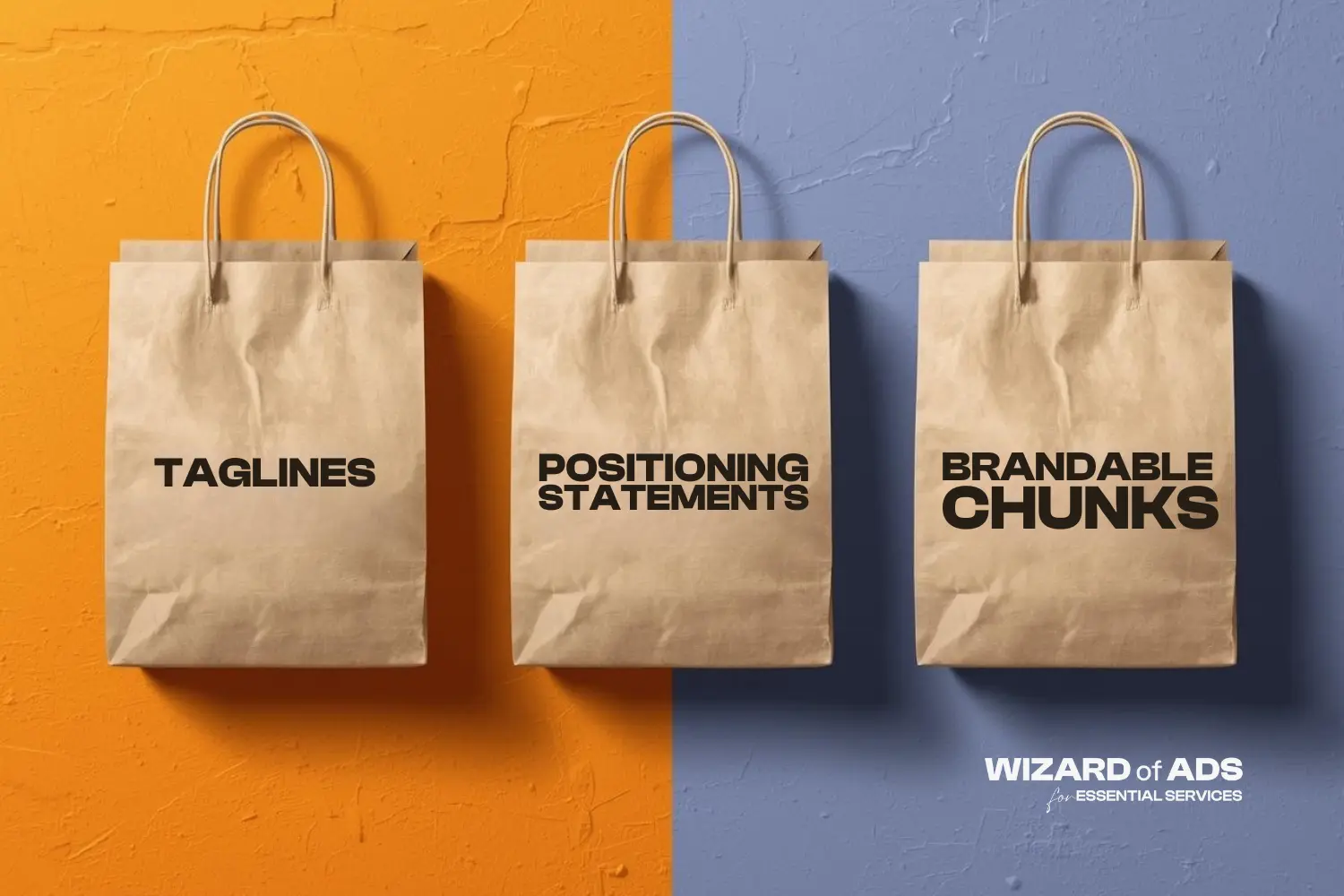
.webp)
.webp)
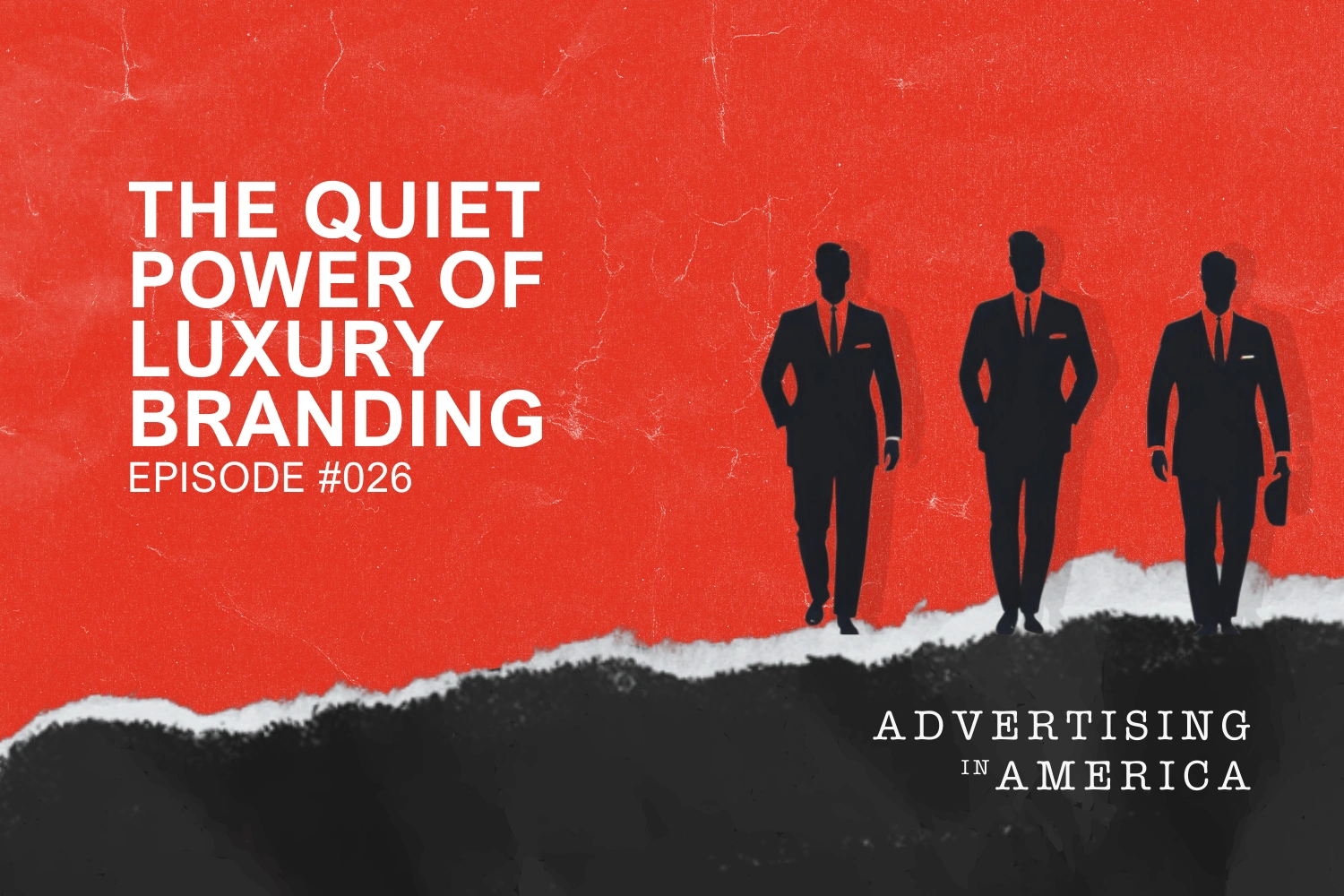

.webp)
.webp)
